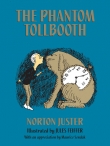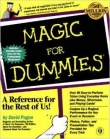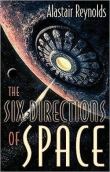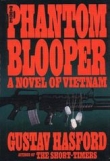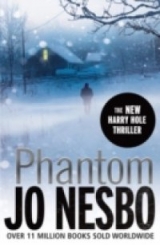
Текст книги "Phantom"
Автор книги: Jo Nesbo
Соавторы: Jo Nesbo,Jo Nesbo
Жанр:
Триллеры
сообщить о нарушении
Текущая страница: 5 (всего у книги 28 страниц)
7
Officer Truls Berntsen had had a brief discussion with the duty inspector at the airport. Berntsen had said yes, he knew the airport was in the Romerike Police District, and he had nothing to do with the arrest, but as a Special Operations detective he had been keeping an eye on the arrested man for a while and had recently been warned by one of his sources that Tord Schultz had been caught with narcotics in his possession. He had held up his ID card showing he was a grade 3 police officer, employed in Oslo Police District by Special Operations and Orgkrim. The inspector had shrugged and without further ado taken him to one of the three remand cells.
After the cell door had slammed behind Truls he looked around to ensure the corridor and the other two cells were empty. Then he sat down on the toilet lid and looked at the slat bed and the man with his head buried in his hands.
‘Tord Schultz?’
The man raised his head. He had removed his jacket, and had it not been for the flashes on his shirt Berntsen would not have recognised him as the chief pilot of an aircraft. Captains should not look like this. Not petrified, pale, with pupils that were large and black with shock. On the other hand, it was how most people looked after they had been apprehended for the first time. It had taken Berntsen a little while to locate Tord Schultz in the airport. But the rest was easy. According to STRASAK, the official criminal register, Schultz did not have a record, had never had any dealings with the police and was – according to their unofficial register – not someone with known links to the drugs community.
‘Who are you?’
‘I’m here on behalf of the people you work for, Schultz, and I don’t mean the airline. Screw the rest. Alright?’
Schultz pointed to the ID card hanging from a string around Berntsen’s neck. ‘You’re a policeman. You’re trying to trick me.’
‘It would be good news if I was, Schultz. It would be a breach of procedures and a chance for your solicitor to have you acquitted. But we’ll manage this without solicitors. Alright?’
The airline captain continued to stare with dilated pupils absorbing all the light they could, the slightest glimpse of optimism. Truls Berntsen sighed. He could only hope that what he was going to say would sink in.
‘Do you know what a burner is?’ Berntsen asked, pausing only briefly for an answer. ‘It’s someone who destroys police cases. He makes sure that evidence becomes contaminated or goes missing, that mistakes are made in legal procedures, thus preventing a case from being brought to court, or that everyday blunders are made in the investigation, thus allowing the suspect to walk away free. Do you understand?’
Schultz blinked twice. And nodded slowly.
‘Great,’ Berntsen said. ‘The situation is that we are two men in free fall with the one parachute between us. I’ve jumped out of the plane to rescue you, for the moment you can spare me the gratitude, but you must trust me one hundred per cent, otherwise we’ll both hit the ground. Capisce?’
More blinking. Obviously not.
‘There was once a German policeman, a burner. He worked for a gang of Kosovar Albanians importing heroin via the Balkan route. The drugs were driven in lorries from the opium fields in Afghanistan to Turkey, transported onwards through ex-Yugoslavia to Amsterdam where the Albanians channelled it on to Scandinavia. Loads of borders to cross, loads of people to be paid. Among them, this burner. And one day a young Kosovar Albanian is caught with a petrol tank full of raw opium, the clumps weren’t wrapped up, just put straight into the petrol. He was held in custody, and the same day the Kosovar Albanians contacted their German burner. He went to the young man, explained that he was his burner and he could relax now, they would fix this. The burner said he would be back the next day and tell him what statement to make to the police. All he had to do was keep his mouth shut. But this guy who had been nabbed red-handed had never served time before. He had probably heard too many stories about bending over in the prison showers for the soap; at any rate he cracked like an egg in the microwave at the first interview and blew the whistle on the burner in the hope that he would receive favourable treatment from the judge. So. In order to get evidence against the burner the police put a hidden microphone in the cell. But the burner, the corrupt policeman, did not turn up as arranged. They found him six months later. Spread over a tulip field in bits. I’m a city boy myself, but I’ve heard bodies make good manure.’
Berntsen stopped and looked at the pilot while waiting for the usual question.
The pilot had sat up straight on the bed, recovered some colour in his face and at length cleared his throat. ‘Why… erm, the burner? He wasn’t the one who grassed.’
‘Because there is no justice, Schultz. There are only necessary solutions to practical problems. The burner who was going to destroy the evidence had become evidence himself. He had been rumbled, and if the police caught him he could lead the detectives to the Kosovar Albanians. Since he wasn’t one of their brothers, only a corrupt cop, it was logical to expedite him into the beyond. And they knew this was the murder of a policeman the police would not prioritise. Why should they? The burner had already received his punishment, and the police don’t set up an investigation where the only goal they will achieve is to inform the public about police corruption. Agreed?’
Schultz didn’t answer.
Berntsen leaned forward. The voice went down in volume and up in intensity. ‘I do not want to be found in a tulip field, Schultz. Our only way out of this is to trust each other. One parachute. Got that?’
The pilot cleared his throat. ‘What about the Kosovar Albanian? Did he have his sentence commuted?’
‘Hard to say. He was found hanging from the cell wall before the case came to court. Someone had smashed his head against a clothes hook.’
The captain’s face lost its colour again.
‘Breathe, Schultz,’ Truls Berntsen said. That was what he liked best about this job. The feeling that he was in charge for once.
Schultz leaned back and rested his head against the wall. Closed his eyes. ‘And if I decline your help outright and we pretend you’ve never been here?’
‘Won’t do. Your employer and mine don’t want you in the witness box.’
‘So, what you’re saying is I have no choice?’
Berntsen smiled. And uttered his favourite sentence: ‘Schultz, it’s a long time since you had any choice.’
Valle Hovin Stadium. A little oasis of concrete in the middle of a desert of green lawns, birch trees, gardens and flowerboxes on verandas. In the winter the track was used as a skating rink, in the summer as a concert venue, by and large for dinosaurs like the Rolling Stones, Prince and Bruce Springsteen. Rakel had even persuaded Harry to go along with her to see U2, although he had always been a club man and hated stadium concerts. Afterwards she had teased Harry that in his heart of hearts he was a closet music fundamentalist.
Most of the time, however, Valle Hovin was as now, deserted, run-down, like a disused factory which had manufactured a product that was no longer used. Harry’s best memories from here were seeing Oleg training on the ice. Sitting and watching him try his hardest. Fighting. Failing. Failing. Then succeeding. Not great achievements: a new PB, second place in a club championship for his age group. But more than enough to make Harry’s foolish heart swell to such an absurd size that he had to adopt an indifferent air so as not to embarrass both of them. ‘Not bad that, Oleg.’
Harry looked around. Not a soul in sight. Then he inserted the Ving key in the lock of the dressing-room door beneath the stands. Inside, everything was unchanged, except more worn. There was refuse on the floor; it was clearly a long time since anyone had been here. It was a place you could be alone. Harry walked between the lockers. Most were not locked. But then he found what he was looking for, the Abus padlock.
He pushed the tip of the key into the jagged aperture. It wouldn’t go in. Shit.
Harry turned. Let his eyes glide along the bulky iron cabinets. Stopped, went back one locker. That was another Abus padlock. And there was a circle etched into the green paint. An ‘O’.
The first objects Harry saw when he opened up were Oleg’s racing skates. The long, slim blades had a kind of red rash along the edge.
On the inside of the cabinet door, stuck to the ventilation grille, were two photographs. Two family photographs. One showed five faces. Two of the children and what he assumed were the parents were unfamiliar. But he recognised the third child. Because he had seen him in other photographs. Crime-scene photographs.
It was the good looks. Gusto Hanssen.
Harry wondered whether it was the good looks that did it, the immediate sensation that Gusto Hanssen did not belong in the photograph. Or, to be precise, that he didn’t belong to the family.
The same, strangely enough, could be said about the tall, blond man sitting behind the dark-haired woman and her son in the second photograph. It had been taken one autumn day several years ago. They had gone for a walk in Holmenkollen, waded through the orange-coloured foliage, and Rakel had placed her camera on a rock and pressed the self-timer button.
Was that really him? Harry could not remember having such gentle features.
Rakel’s eyes gleamed, and he imagined he could hear her laughter, the laughter he loved, of which he never tired, and always tried to recall. She laughed with others too, but with him and Oleg it had a different tone, one reserved for them alone.
Harry searched the rest of the locker.
There was a white sweater with a light blue border. Not Oleg’s style, he wore short jackets and black T-shirts emblazoned with Slayer and Slipknot. Harry smelt the sweater. Faint perfume, feminine. There was a plastic bag on the hat shelf. He opened it. Quick intake of breath. It was a junkie’s kit: two syringes, a spoon, a rubber band, a lighter and some cotton wool. All that was missing was dope. Harry was about to replace the bag when he spotted something. A shirt at the very back. It was red and white. He took it. It was a football shirt with an imperative on the chest: Fly Emirates. Arsenal.
He looked up at the photograph, at Oleg. Even he was smiling. Smiling as though he believes, at least then, that there are three people sitting here who agree that this is wonderful, everything will be fine, this is how we want things to be. So why would it go off course? Why would the man with his hands round the wheel drive off course?
‘The way you lied you would always be there for us.’
Harry removed the photos from the locker door and slipped them into his inside pocket.
When he emerged the sun was on its way down behind Ullern Ridge.
8
Can you see I’m bleeding, Dad? I’m bleeding your bad blood. And your blood, Oleg. It’s you the church bells should be tolling for. I curse you, curse the day I met you. You’d been to a gig at Spectrum, Judas Priest. I had been hanging around and joined the crowd of people coming out of the venue.
‘Wow, cool T-shirt,’ I said. ‘Where did you get it?’
You gave me a strange look. ‘Amsterdam.’
‘Did you see Judas Priest in Amsterdam?’
‘Why not?’
I knew nothing about Judas Priest, but at least I had done some swotting and found out it was a band, not a guy, and that the lead singer’s name was Rob something or other.
‘Great. Priest rules.’
You stiffened for a second and looked at me. Concentrated, like an animal that had caught a scent. A danger, or prey, a sparring partner. Or – in your case – a possible soulmate. For you carried your loneliness like a wet, heavy raincoat, Oleg, you walked with a bent back and shuffled your feet. I had picked you out precisely because of your loneliness. I said I’d buy you a Coke if you told me about the Amsterdam gig.
So you talked about Judas Priest, the concert at Heineken Music Hall two years ago, about the two friends of eighteen and nineteen who shot themselves after listening to a Priest record with a hidden message that said ‘Do it’. Except that one of them survived. Priest were heavy metal, had been into speed metal. And twenty minutes later you had spoken so much about goths and death that it was time to introduce meth into the conversation.
‘Let’s hit the high spots, Oleg. Celebrate this meeting of like minds. What do you say?’
‘What do you mean?’
‘I know some fun people who are going to do a bit of smoking in the park.’
‘Really?’ Sceptical.
‘No heavy stuff, just ice.’
‘I don’t do that, sorry.’
‘Hell, I don’t do it either. We can smoke a bit of pipe. You and me. Real ice, not the powder shit. Like Rob.’
Oleg stopped in mid-gulp. ‘Rob?’
‘Yes.’
‘Rob Halford?’
‘Sure. His roadie bought from the same guy I’m going to buy from now. Got any money?’
I said it in such a casual way, such a casual and matter-of-fact way that there was not a shadow of suspicion in the serious eyes he fixed on me. ‘Rob Halford smokes ice?’
He forked up the five hundred kroner I asked him for. I told him to wait, got up and left. Down the road to Vaterland Bridge. So, when I was out of range, to the right, I was over the road and down the three hundred metres to Oslo Central Station in minutes. Thinking that would be the last I saw of Oleg fricking Fauke.
It was only when I was sitting in the tunnel under the platforms with a pipe in my mouth that I realised he and I were not finished with each other yet. Nowhere near. He stood above me without saying a word. He leaned against the wall and slid down beside me. Stuck out his hand. I gave him the pipe. He inhaled. Coughed. And stuck out his other hand. ‘The change.’
With that, the team of Gusto and Oleg became a fact. Every day, after he had finished at Clas Ohlson, where he had a summer job in the warehouse, we went down to the city centre, the parks, bathed in the filthy water in Middelalder Park, and watched them building a new part of town around the Opera House.
We told each other about all the things we were going to do and become, about the places we would go, smoking and sniffing everything we could buy with his summer job money.
I told him about my foster-father, how he had thrown me out because my foster-mother had made advances on me. And you, Oleg, talked about a guy your mother had been with, a cop called Harry you claimed was ‘top notch’. Someone you could trust. But something had gone sour. First of all, between him and your mother. And then you had been dragged into a murder case he was working on. And that was when you and your mother had moved to Amsterdam. I said the guy probably was ‘top notch’, but it was a pretty corny expression. And you said ‘fricking’ was even cornier. Had anyone told me the word was ‘frigging’? Even that was childish. And why did I speak such exaggerated cockney Norwegian? I wasn’t even from the East End of Oslo. I said exaggerating was a principle I had, it emphasised a point and ‘fricking’ was so wrong it was right. And the sun shone, and I thought that was the best thing anyone had said about me.
We begged for money on Karl Johans gate for fun. I nicked a skateboard from Radhusplassen and swapped it for speed on Jernbanetorget half an hour later. We took the boat to Hovedoya, swam and bummed beers. Some girls wanted me to join them in Daddy’s yacht and you dived from the mast, only just clearing the deck. We caught the tram to Ekeberg to see the sunset and there was the Norway Cup, and a sad football coach from Trondelag was looking at me, and I said I would give him a blow job for a thousand kroner. He stumped up and I waited until his trousers were round his ankles before I scarpered. And you told me afterwards he had looked ‘totally lost’ and turned to you, as if asking you to take over the job. Jeez, how we laughed!
That summer never ended. Then it did after all. We spent your last pay packet on spliffs, which we blew into the pale, empty night sky. You said you were going to return to school, get top grades and study law, like your mother. And that afterwards you would do fricking Police College! We laughed so much we had tears in our eyes.
But when school began I saw less of you. Then even less. You lived up on Holmenkollen Ridge with your mother while I crashed on a mattress in the rehearsal room of a band who said I was fine there so long as I kept an eye on their gear and stayed away when they were practising. So I gave up on you, thinking you were comfortable back in your conventional little life. And that was about the time I started dealing.
It happened quite by chance. I had milked a woman I was staying with, then I went to Oslo Central and asked Tutu if he had any ice. Tutu had a bit of a stammer and was slave to Odin, the boss of Los Lobos in Alnabru. He had got his name from the time Odin, needing to launder a suitcase of drugs money, had sent Tutu to a state bookies’ in Italy to put a bet on a match that Odin knew was fixed. The home team was supposed to win 2–0. Odin had instructed Tutu how to say ‘two-nil’, but then came the turning point. Tutu was so nervous and stammered so much as he tried to place the bet that the bookie only heard tu-tu and wrote it on the coupon. Ten minutes before the end the home side was of course leading 2–0, and everything was peace and light. Except for Tutu, who had just seen on the betting slip that he had put the money on tu-tu: 2–2. He knew that Odin would kneecap him. He has a thing about kneecapping people. But then came turning-point number two. On the away bench was a new forward from Poland whose Italian was as bad as Tutu’s English, so he hadn’t picked up that the game was a fix. When the manager sent him onto the field, he played as well as he thought they had paid him to do: he scored. Twice. Tutu was saved. But when Tutu landed in Oslo that night and went straight to Odin to tell him about his stroke of good fortune, his luck evened out. He started by giving the news that he had blundered and put the cash on the wrong result. And he was so worked up and stammered so much that Odin lost patience, grabbed a revolver from a drawer and – turning-point number three – shot Tutu in the knee long before he came to the bit about the Pole.
Anyway, that day at Oslo Central Tutu told me there was no more ice to be h-h-had, I would have to make do with p-p-powder. It was cheaper and both parts are methamphetamine, but I can’t stand it. Ice is lovely white bits of crystal that blow your head off whereas the stinking yellow shit you get in Oslo is mixed with baking powder, refined sugar, aspirin, vitamin B12 and the devil and his mother. Or, for connoisseurs, chopped-up painkillers that taste of speed. But I bought what he had with a tiny bulk discount and had enough money left for some A. And since amphetamines are an unadulterated health food compared with meth, just a bit slower to work, I sniffed some speed, diluted the meth with more baking powder and sold it at Plata with a fantastic mark-up.
The next day I went back to Tutu and repeated the biz, plus a bit more. Sniffed some, diluted it and sold the rest. Ditto the day after. I said I could take more if he put it on the tab, but he laughed. When I returned on the fourth day Tutu said his boss thought we should do this on a more est-st-stablished basis. They had seen me selling, and liked what they saw. If I sold two batches a day that meant five thousand straight, no questions asked. And so I became a street pusher for Odin and Los Lobos. I got the goods from Tutu in the morning and delivered the day’s takings with any leftovers to him by five. Day shift. There were never any leftovers.
All went well for about three weeks. One Wednesday on Vippetangen quay, I had sold two batches, my pockets were full of cash, my nose was full of speed, when I suddenly saw no reason to meet Tutu at the station. Instead I texted him to say I was going on holiday and jumped on the ferry to Denmark. That’s the type of blackout you have to reckon with when you take bumblebees for too long and too often.
On my return I heard a rumour that Odin was on the lookout for me. And it freaked me out a bit, especially as I knew how Tutu got his nickname. So I kept my head down, hung out round Grunerlokka. And waited for Judgement Day. But Odin had bigger things on his mind than a pusher who owed him a few thousand. Competition had come to town. ‘The Man from Dubai’. Not in the bumblebee market, but in heroin, which was more important than anything else for Los Lobos. Some said they were White Russians, some said they were Lithuanians, and others a Norwegian Pakistani. All agreed, however, it was a professional organisation, they feared no one and it was better to know too much rather than too little.
It was a crap autumn.
I had gone broke long ago, I no longer had a job and was forced to keep a low profile. I had found a buyer for the band’s equipment in Bispegata, he had been to see it, I’d convinced him it was mine, after all I did live there! It was just a question of agreeing a time to collect it. Then – like a rescuing angel – Irene appeared. Nice, freckled Irene. It was an October morning, and I was busy with some guys in Sofienberg Park when there she was, almost in tears with happiness. I asked if she had any money, and she waved a Visa card. Her father’s, Rolf’s. We went to the nearest cashpoint and emptied his account. At first, Irene didn’t want to, but when I explained my life depended on it, she knew it had to be done. We went to Olympen and ate and drank, bought a few grams of speed and returned home to Bispegata. She said she’d had a row with her mum. She stayed the night. The next day I took her with me to the station. Tutu was sitting on his motorbike wearing a leather jacket with a wolf’s head on the back. Tutu with a goatee, pirate’s scarf round his head and tattoos protruding from his collar, but still looking like a fricking lackey. He was about to jump off and run after me when he realised I was heading towards him. I gave him the twenty thousand I owed plus five in interest. Thank you for lending me the holiday money. Hope we can turn over a new leaf. Tutu rang Odin while looking at Irene. I could see what he wanted. And looked at Irene again. Poor, beautiful, pale Irene.
‘Odin says he wants f-f-five more,’ Tutu said. ‘If not I’ve got orders to give you a b-b-b-bea-bea-bea…’ He took a deep breath.
‘Beating,’ I said.
‘Right now,’ Tutu said.
‘Fine, I’ll sell two batches for you today.’
‘You’ll have to p-p-pay for them.’
‘Come on, I can sell them in two hours.’
Tutu eyed me. Nodded to Irene, who was standing at the bottom of Jernbanetorget steps, waiting. ‘What about h-h-her?’
‘She’ll help me.’
‘Girls are good at s-s-selling. Is she on drugs?’
‘Not yet,’ I said.
‘Th-thief,’ Tutu said, grinning his toothless grin.
I counted my money. My last. It was always my last. My blood’s flowing out of me.
A week later, by Elm Street Rock Cafe, a boy stopped in front of Irene and me.
‘Say hello to Oleg,’ I said and jumped down from the wall. ‘Say hello to my sister, Oleg.’
Then I hugged him. I could feel he hadn’t lowered his head; he was looking over my shoulder. At Irene. And through his denim jacket I could feel his heart accelerating.
Officer Berntsen sat with his feet on the desk and the telephone receiver to his ear. He had rung the police station in Lillestrom, Romerike Police District, and introduced himself as Thomas Lunder, a laboratory assistant for Kripos. The officer he was speaking to had just confirmed they had received the bag of what they assumed was heroin from Gardermoen. The standard procedure was that all confiscated drugs in the country were sent for testing to the Kripos laboratory in Bryn, Oslo. Once a week a Kripos vehicle went round collecting from all the police districts in Ostland. Other districts sent the material via their own couriers.
‘Good,’ Berntsen said, fidgeting with the false ID card displaying a photo and the signature of Thomas Lunder, Kripos, underneath. ‘I’ll be in Lillestrom anyway, so I’ll pick up the bag for Bryn. We’d like such a large seizure to be tested at once. OK, see you early tomorrow.’
He rang off and looked out of the window. Looked at the new area around Bjorvika rising towards the sky. Thought of all the small details: the sizes of screws, the thread on nuts, the quality of mortar, the flexibility of glass, everything that had to be right for the whole to function. And felt a profound satisfaction. Because it did. This town did function.



